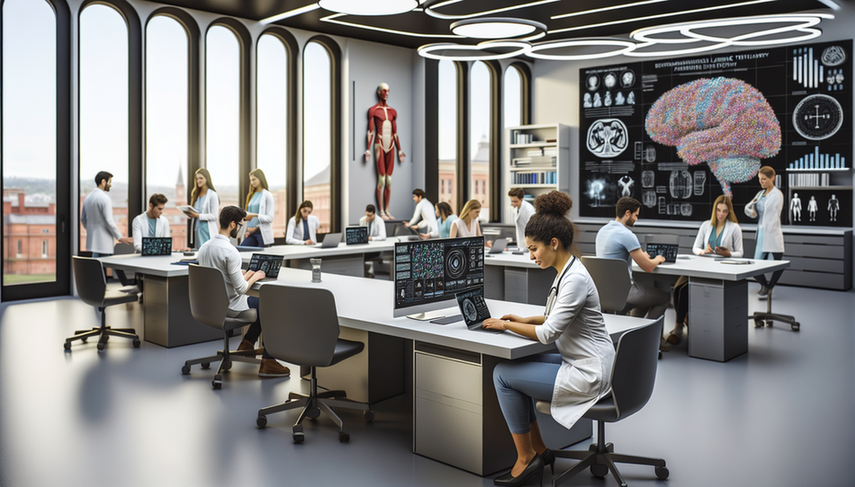Recommendation Systems in Medical Education: AI for Personalized Training and Adaptive Learning

The medical education landscape is undergoing a significant transformation thanks to the integration of artificial intelligence (AI) and recommendation systems. These technological advancements are enabling personalized training that adapts to the individual needs of students, promoting adaptive learning and enhancing the quality of medical content delivered. In this context, AI emerges as a digital doctor that guides and optimizes the educational process.
Diving Deeper into AI and Medical Education
The implementation of AI in medical education not only facilitates access to up-to-date information but also allows for the creation of personalized learning scenarios. A recent study demonstrated how a gamified technological tool, incorporating recommendation systems, improved the academic performance of anatomy students by providing specific predictions and recommendations tailored to each learner.
Moreover, AI is revolutionizing the way teaching and learning occur in medical schools. For instance, the use of AI-based clinical decision support systems has proven effective in teaching oncology, enhancing independent learning capabilities and student engagement. These systems not only provide accurate recommendations but also foster students' confidence in the outcomes achieved.
AI is also being utilized to enhance clinical information management, enabling healthcare professionals to make more informed, evidence-based decisions. This is crucial in an environment where precision and treatment personalization are fundamental.
Conclusions
The integration of AI in medical education is redefining the educational landscape, offering unprecedented opportunities for personalized training. AI-based recommendation systems not only improve access to medical content but also promote adaptive learning that aligns with the individual needs of each student. As we continue to explore these technologies, it is essential for educators and healthcare professionals to collaborate to maximize their potential and ensure that medical education remains relevant and effective in the 21st century.
References
- [1] Empowering human anatomy education through gamification and artificial intelligence: An innovative approach to knowledge appropriation
- [2] Comparison of case-based learning using Watson for oncology and traditional method in teaching undergraduate medical students
- [3] Artificial intelligence in the field of pharmacy practice: A literature review
Created 20/1/2025
